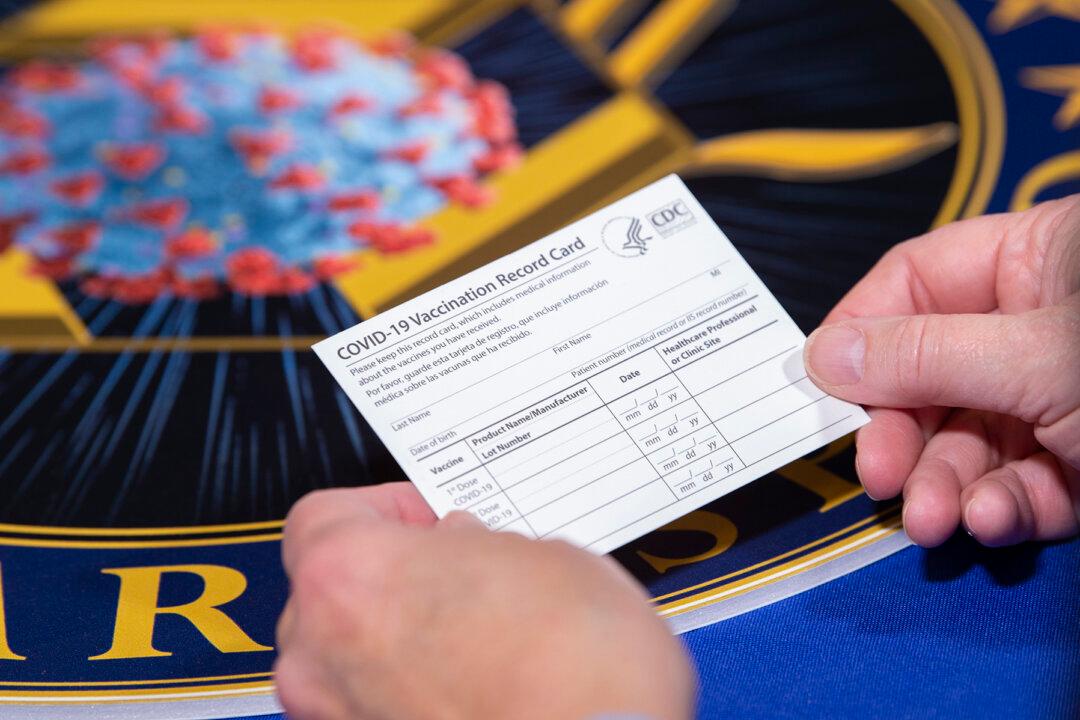WASHINGTON—The Department of Defense confirmed on Dec. 2 that 20 million doses of a COVID-19 vaccine will likely be distributed later this month.
Americans who receive the vaccination will be issued a COVID-19 vaccine record card, which will also serve as a reminder for their next dose, officials said. The vaccines currently under consideration require two doses.





